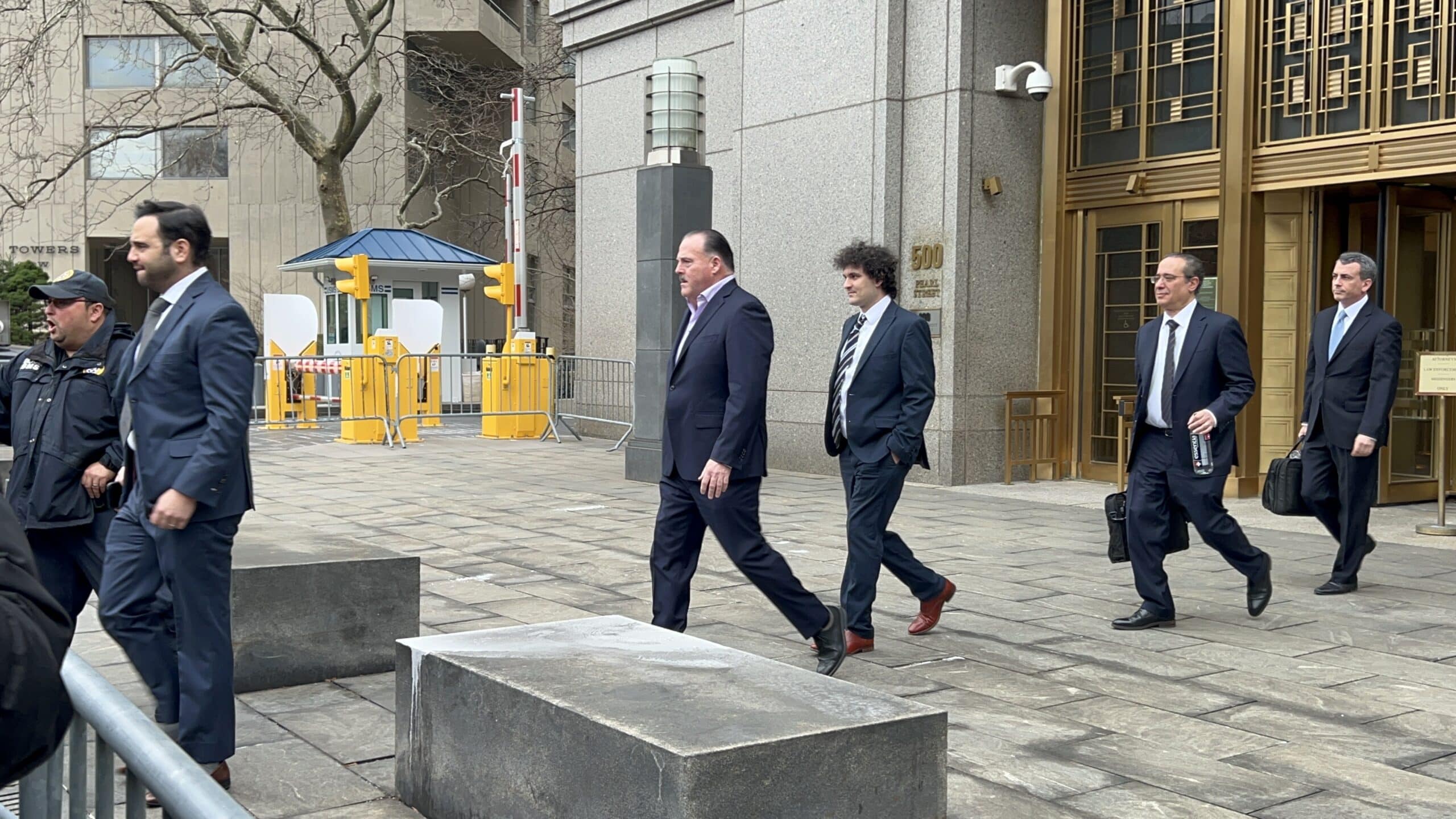NEW YORK – Three people testified during the Sam Bankman-Fried trial Thursday, with one declaring that “FTX defrauded all of its customers” and another stating that he had committed financial crimes.
Former FTX software developer Adam Yedidia, Paradigm co-founder Matt Huang, and FTX cofounder Gary Wang took the witness stand, answering questions about their interactions with Bankman-Fried and his business dealings.
Adam Yedidia surprises courtroom by bluntly exclaiming that FTX defrauded its customers
Yedidia, who finished his two-day testimony, shared with the court why he resigned from FTX.
In December 2021, Yedidia became aware of a bug in FTX’s codebase that overstated how much money Alameda Research owed FTX. When FTX customers deposited fiat money, namely the United States dollar, into the exchange, sometimes they would route it to an account at Silvergate Bank controlled by Alameda Research but under the name North Dimension. This was tracked internally in the FTX database with an account called “fiat@“. At the time the bug was discovered, FTX’s internal system had mistakenly indicated that Alameda Research owed $500 million more than it actually owed to FTX customers. But by the time it was fixed in June 2022, it revealed that Alameda owed $8 billion to FTX customers, a large and concerning number for Yedidia.
At this point, Yedidia had a conversation with Bankman-Fried in the Padel tennis courts at Albany, the luxury community where they lived in the Bahamas. Yedidia asked the defendant if everything was OK, and Bankman-Fried responded, “we were bulletproof last year, we’re not bullet proof this year.” When Yedidia asked how long it might be before they’re bulletproof again, the former FTX CEO replied that it might be six months to three years.
In November 2022, as FTX was imploding and employees had already started leaving, Yedidia told Bankman-Fried via Signal, “I love you, Sam. I’m not going anywhere” to reassure him that he also would not quit.
However, Yedidia’s attitude changed when he received a phone call from a fellow FTX developer, Leila Clark, who told him Alameda Research had used FTX customer deposits to pay Alameda’s loans to its lenders. During questioning by the prosecution, he revealed that in June when he’d seen that Alameda owed $8 billion to FTX customers, he had assumed Alameda had the ability to repay that debt. But at this point, he said he realized, QUOTE “if Alameda was repaying its loans with FTX customer money, that implied that it didn’t have money of its own to repay the loans with, which means the money was simply gone.” The prosecutor later asked once more about how Yedidia believed in FTX and asked why his belief changed, he exclaimed, “Well, FTX defrauded all of its customers,” silencing the courtroom for several seconds.
Matt Huang: Paradigm was concerned about FTX’s lack of governance controls
Matt Huang, co-founder of crypto investment firm Paradigm, testified after Yedidia, detailing how and why Paradigm invested in FTX starting in 2021. Huang said that Paradigm was impressed with FTX’s liquidation engine and its growth in market share. He also expressed how Paradigm’s investment decision would have been severely impacted if he had known FTX could transfer customer deposits out of the exchange wallets and use them for its own purposes.
During his testimony, prosecutors showed email correspondence between Bankman-Fried and Paradigm employee Arjun Balaji, in which the VC firm expressed concern about the lack of traditional corporate governance structures at FTX. Balaji wrote, “As we understand, FTX is effectively owned and controlled by Sam, lacking more traditional corporate governance model, rights, etc. One example of where this can negatively manifest with crypto companies is through (unintended) value leverage, e.g. via FTT, Alameda or some other mechanism.”
At another point in his testimony, Huang said, “It was generally understood that customer deposits are sort of sacred, that when customers deposit into the exchange, they expect the ability to get them back out.”
According to Huang, Paradigm has invested roughly $278 million into FTX since 2021, which has since been marked to zero.
Gary Wang reveals Alameda had $65 billion line of credit
Gary Wang, the cofounder of Alameda Research and FTX, began his testimony by declaring that he had committed financial crimes, specifically wire fraud, securities fraud and commodities fraud, during his time at FTX.
Wang, who was also FTX’s chief technology officer, had said Bankman-Fried had directed him to place code inside FTX’s software that gave special privileges to Alameda. As a result, Alameda could withdraw and transfer out an unlimited amount of customer deposits from FTX, even with a negative balance on the exchange, as well as place trade orders faster than other customers, giving Alameda a strategic advantage.
Additionally, Wang stated that Alameda had a credit line of $65 billion, substantially bigger than large market makers that only had single to double-digit million-dollar credit lines. During his testimony, the prosecution also explained how the name Alameda Research was chosen for a proprietary trading firm. They played a clip from a Blockworks podcast interwith with Bankman-Fried in which he said, “we knew banks were going to shut us down if we named our company Shitcoin Day Traders Inc, but no one doesn’t like research.”
Wang will continue his testimony tomorrow, after which Zac Prince, CEO of BlockFi, will take the witness stand.



